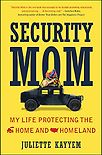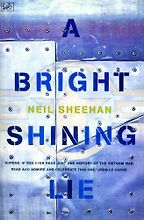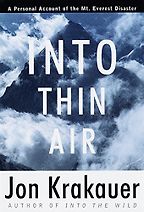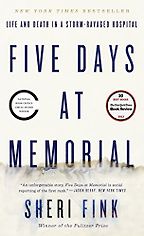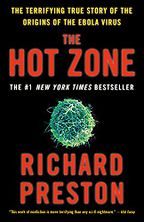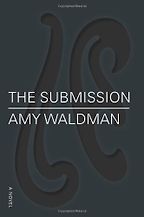Books about national security is our topic. The depth of your expertise is authenticated by career highlights as a National Commission on Terrorism member, cochair of the congressionally-mandated Homeland Security National Preparedness Task Force and as Massachusetts’ first Undersecretary for Homeland Security. Protecting home and homeland is the subject of your book; tell us about Security Mom.
I wanted to write a book to relay what I learned through my work in Homeland Security in a way that was relatable and could be applied in day-to-day life. The title refers to moderate women who were called ‘soccer moms’ until 9/11 shifted their top concerns. Pundits are now suggesting that same demographic might now more aptly be called ‘sanitizer moms’ or ‘social distancing moms’ to encapsulate how priorities and allegiances are shifting. The stories I tell give readers guidance on how to build more resilient homes.
COVID-19 has made your can-do, do-it-yourself security advice more topical than ever. Which pieces of your own advice have you found most handy during this crisis?
Two things spring to mind. First, part of a healthy attitude about homeland security is curtailing or curfewing worries about things we can’t control. These are challenging times. We are all rethinking the way we do almost everything. But if we stew over every difficult decision we make, the incidence of cardiac attacks is going to go through the roof. Secondly, with three teenagers at home, I remind myself of my advice on how to communicate with kids during disasters. Most importantly: be available to listen.
The first book you’ve recommended is A Bright Shining Lie by Neil Sheehan which won both the Pulitzer and National Book Award.
A Bright Shining Lie is about John Paul Vann, a U.S. Army lieutenant colonel who clung to the belief that the U.S. could achieve its objectives in Vietnam—until he finally saw that perspective was a tissue of lies. More broadly, it’s about how a country can convince itself that a flawed strategy can succeed if you just give it one more month or a few thousand more troops. You can’t read that book without thinking about Afghanistan and Iraq and how the United States has handled the COVID pandemic.
So, the book describes how national security decision-making degenerates?
It illustrates how a nation is able to lie to itself and how one man is able to lie to himself and those he advises. This story reminds me that national security work must always be rigorously honest, transparent and decision-making driven by data. This story shows that even the experts, even the most well-intentioned and patriotic policymakers, get fooled by ideology and flawed perspectives.
Next, an unexpected choice: Into Thin Air by Jon Krakauer. It’s about the death of eight climbers on Mount Everest. Why did you choose this bestseller?
Resilience and calm, when lives are on the line, is crucial to national security and that is what Into Thin Air is about.
“National security is impacted by many threats: guns, opiates, pandemics and climate change”
Jon Krakauer is a phenomenal writer. It’s about a climbing season when the ascending teams made an avalanche of mistakes. Despite a dire forecast, out of pure hubris, many climbers cast all cautions and rules about when to return aside. Some were stranded at the top of Everest. But when the will to survive set in, they pulled together to save themselves and others. It reminds me that the will to live can have a clarifying effect in many murky situations.
You mention the risk-reward decisions made by summit seekers, which brings to mind the protest of liberty absolutists in America, who took their anger about COVID shutdowns to the street. Do you have an algorithm for weighing the trade-off between liberty and security?
Each person needs to figure out how to lower their risks and heighten their defenses, without unduly disrupting their lives. Everyone is allowed an irrational fear. Also, importantly, give yourself a break. This is especially important during COVID-19, as so many mothers are punishing themselves for not being the perfect employee, teacher, cleaner and life partner. There can’t be perfection in the middle of a crisis. And we don’t start out with perfect information. Accept that the balance between liberty and security will need to be re-struck on a regular basis.
Now a book by Pulitzer Prize-winning journalist Sheri Fink. Tell us about Five Days at Memorial.
This is a gripping recounting of what happened in an over-burdened, storm-ravaged New Orleans hospital after Hurricane Katrina. Memorial was cut off from outside help, without the supplies, personnel and equipment to handle the patients that inundated the hospital during the floods. Decisions had to be made about the allocation of resources that led to accusations of euthanasia. This is a book about moral ambiguity in the face of disaster, about the decisions that one makes at moments of crisis when it seems impossible to make choices. Based on hundreds of interviews and the review of mountains of documents, Sheri Fink helps us better understand the calculations that we make under pressure.
After Hurricane Katrina, the Republican-led House of Representatives created a Bipartisan Committee to Investigate the Preparation for and Response to Hurricane Katrina. I’d like to quote the beginning of this: “It has been said civilization is a race between education and catastrophe. With Katrina, we have had the catastrophe, and we are racing inexorably toward the next. Americans want to know: what have we learned?” How important is mid- and after action review to preparing for the next emergency? What do we lose if there is no independent investigation of emergency response?
Hurricane Katrina was a pivotal moment. You have to remember that before 2005, the entire Homeland Security apparatus was focused on stopping threats like a recurrence of 9/11, in which 19 men weaponized four airplanes. It was all about counterterrorism. After Hurricane Katrina struck, we realized that we couldn’t save the nation from drowning. It changed the way we think about national security. National security is impacted by many threats: guns, opiates, pandemics and climate change.
Get the weekly Five Books newsletter
I think an independent after-action review is necessary because although many mistakes made during the COVID-19 crisis are attributable to the present president, others are not. Do we need a bigger healthcare stockpile? How should we prepare the nation to shelter in place? Should we act alone on vaccine development?
Thinking through the thorniest issues that cropped up during the COVID-19 crisis is absolutely necessary. I just don’t think it will happen under this administration.
Hot Zone by Richard Preston is your next choice. The US edition is subtitled “a terrifying true story.” Having just read it in one sitting, I can testify that’s true. What is it about and why have you chosen it?
Hot Zone is about an epidemic. It’s nonfiction at its most thrilling. It conveys the scale of the threat posed by microparasites. Reading Hot Zone reveals how clearly the damage done by COVID-19 was foreseen, two decades ago. It shows we knew what could happen, but just didn’t nurture our public health systems and global health community to meet the threat. We are suffering the consequences of not learning the lessons elucidated in Hot Zone.
The fact that the narrator and all the characters seemed acutely aware of how important it was to contain the virus is what made Hot Zone such a heart-thumper for me. How important is ‘situational awareness’ to national security?
Situational awareness is key. We use the maxim that everyone learns in business school: ‘If you can’t measure it, you can’t manage it.’ Take the COVID-19 crisis. From the start, President Trump has shown a lack of situational awareness, a blindness to the magnitude of what was coming and a lack of understanding of what was needed to meet the threat. President Trump seems to think that if you don’t count deaths, they don’t count and that if he disbands the COVID-19 task force, the crisis will end. That is not a successful crisis management strategy.
The Submission, a novel by former New York Times reporter Amy Waldman, whom I interviewed on 9/11 literature, is your final choice. Tell us about the book and why you’ve chosen it.
The Submission is about how a nation memorializes tragedy. It’s a fascinating work of fiction, written in the wake of 9/11, about an architectural competition to choose a design for the 9/11 memorial. It’s based on what happened after a young Asian-American architect was chosen to design the Vietnam Veterans Memorial in Washington. It focuses on how communities come together after a crisis of national security, how anger can get misdirected and how both families who lost loved ones and a nation heals. This is one of my favorite books and not just because its author, Amy, has been a friend since the sixth grade.
How the world will work in the aftermath of the COVID-19 crisis is a topic on the horizon. You advise the private sector and governments on how to shape security policy for the future. What are your predictions and advice?
We are entering an interesting time when we all must learn how to live with this virus. It is hard to know when this virus will subside or if it will always remain a threat. Unlike other crises, where a hurricane hits and leaves a trail of destruction, COVID-19 may ebb and flow, but it looks like it will be around for a long time. Hot spots will crop up, making crisis management more like whack-a-mole. We call this stage ‘adaptive recovery.’
Interview by Eve Gerber
July 15, 2020. Updated: July 18, 2020
Five Books aims to keep its book recommendations and interviews up to date. If you are the interviewee and would like to update your choice of books (or even just what you say about them) please email us at [email protected]
Five Books interviews are expensive to produce. If you've enjoyed this interview, please support us by donating a small amount.

